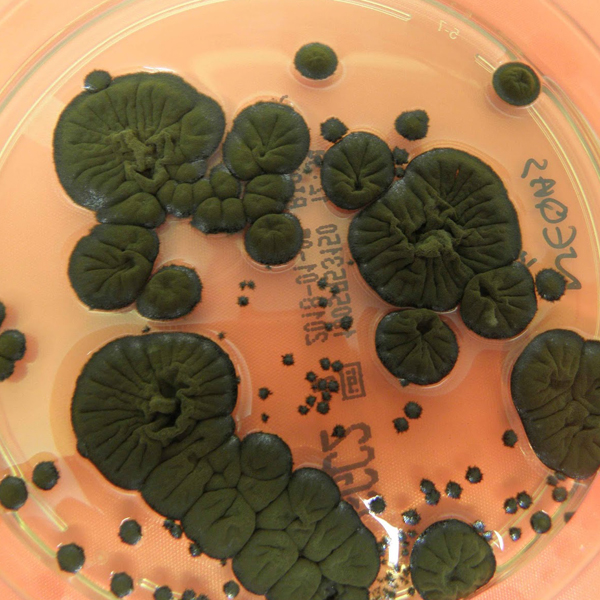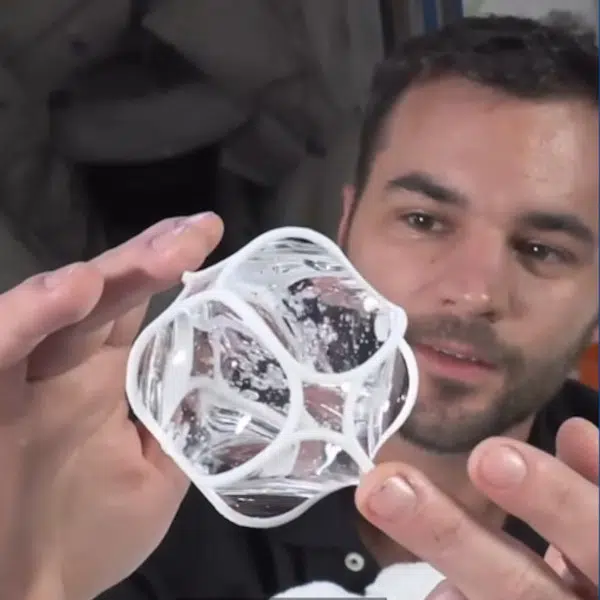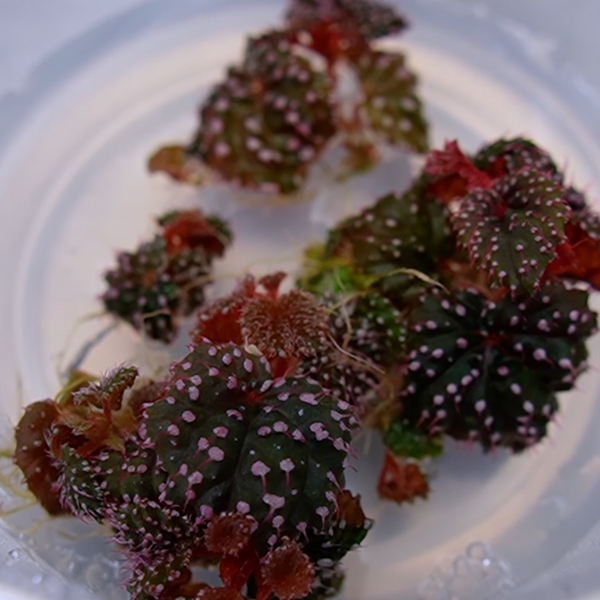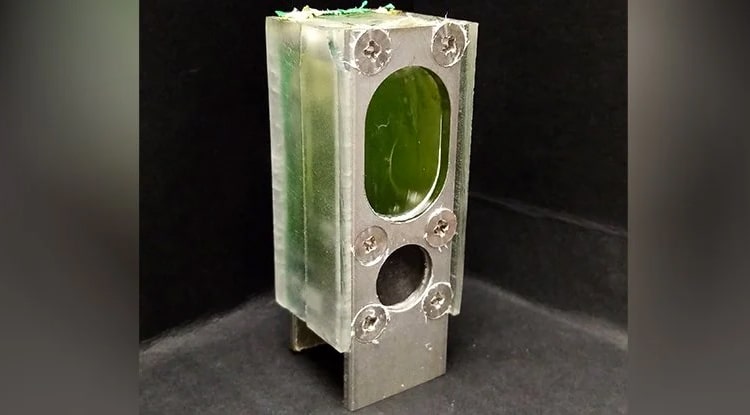
The algae-powered cell. (Photo: Bombelli/University of Cambridge)
Our 21st-century world is full of electronic devices communicating with each other. This elaborate network—from the smallest motion sensor chips to your smartwatch—is known as the Internet of Things. By 2035, it is estimated that this network will contain one trillion devices, all of which require power to run. Where will this energy come from? Researchers at the University of Cambridge have a potential, organic solution. They recently announced in the journal of Energy & Environmental Science that algae has been powering a computer cell for a year and counting.
“The growing Internet of Things needs an increasing amount of power, and we think this will have to come from systems that can generate energy, rather than simply store it like batteries,” said professor Christopher Howe, a senior author of the paper. Batteries are unrealistic, as the ever-expanding power needs of devices will outstrip global lithium supplies. Traditional batteries also have negative humanitarian and environmental impacts. Luckily, other chemical reactions can produce power.
Photosynthesis, or how plants transform Sun, water, and carbon dioxide into oxygen and sugar-based energy, is an incredibly important process within our climate. Researchers harnessed this powerful process on a minuscule level by creating a battery of algae. The non-toxic algae called Synechocystis was placed in a small tank and attached through electrodes to an Arm Cortex M0+, a microprocessor used widely in the Internet of Things. The entire contraption was made of inexpensive, mostly recycled materials. It is the size of a AA battery, but unlike a traditional battery it does not exhaust itself.
Under temperature fluctuations and natural light, the algae produced energy through photosynthesis. The electrodes picked up this energy to power the mini computer. “We were impressed by how consistently the system worked over a long period of time—we thought it might stop after a few weeks but it just kept going,” said first author Dr. Paolo Bombelli in a University statement. The team submitted their paper when the device had passed six months of run time, but it is still going strong after over a year as of May 2022.
Will you be able to buy algae batteries anytime soon? Probably not, but the researchers are hopeful that combining algae cells may provide power for remote, low-usage devices. This research was in partnership with Arm, the company that design microprocessors; and funded by the UK's National Biofilms Innovation Centre. While not an immediate consumer solution, this research provides impressive results which will hopefully encourage further innovation in the field of sustainable, bio-energy.
Scientists at the University of Cambridge have created an algae “battery” which powered a computer for over a year.
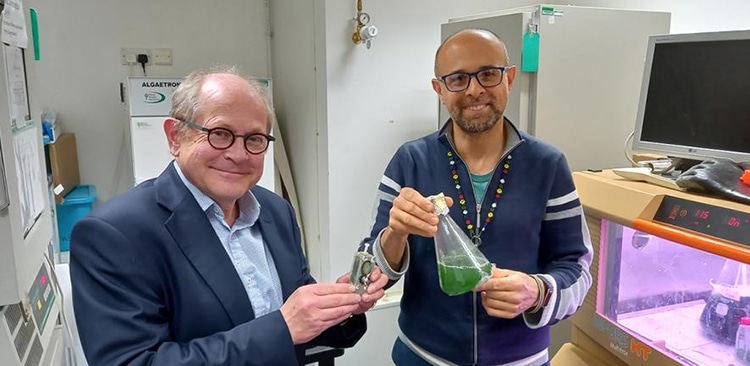
Professor Christopher Howe (left) and Dr Paolo Bombelli (right) with their photosynthetic device. (Photo: Paolo Bombelli/University of Cambridge, CC BY 3.0)
h/t: [BBC, Science Alert]
Related Articles:
The Doomsday Vault Is Opening Its Doors for Some New Types of Seeds
Scientists Reveal the Artistic World Found Under a Microscope
Scientists in China Discover Lush Forest Growing in a 630-Foot Sinkhole
Primary School Students Capture Incredible Images of Earth Using a Weather Balloon and Camera

















































































